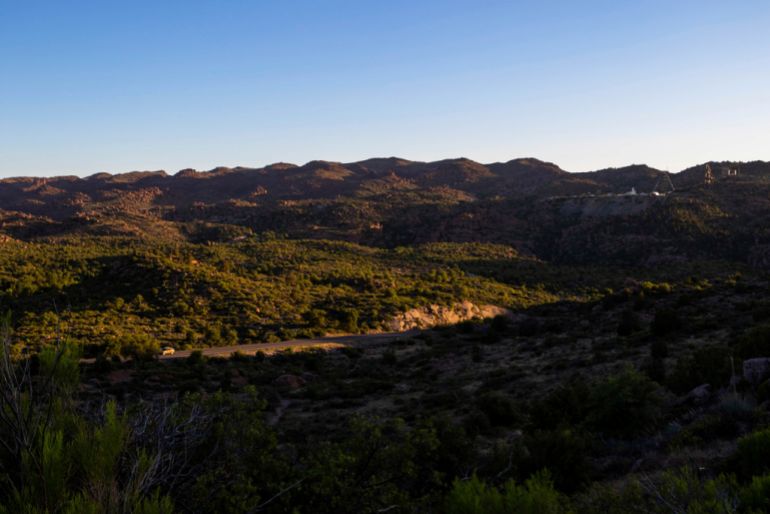The high court has declined to hear a bid to block a project that Indigenous groups say would destroy a site of religious significance.
The United States Supreme Court has declined to weigh a bid from a Native American advocacy group to block the construction of a large copper mine on land that many Apache people consider sacred.
The court turned down an appeal by the group Apache Stronghold on Tuesday, keeping in place a lower court’s ruling that would allow the project to move forward.
At the heart of the case is a stretch of federal land in the Tonto National Forest, part of the western state of Arizona.
The San Carlos Apache tribe know the land as Oak Flat — or Chi’chil Bildagoteel in the Apache language. Members of the tribe point out that the land, with its ancient groves of oak, has long been used as a site for prayer, ceremony and burial.
But Resolution Copper, a subsidiary of the mining conglomerates Rio Tinto and BHP, believes the site sits atop the second largest copper deposit in the world.
In 2014, under former President Barack Obama, the US Congress approved a land swap that gave Resolution Copper 9.71sq km (3.75sq miles) of the Oak Flat forest in exchange for other parcels of land in Arizona.
That, in turn, triggered a years-long legal showdown, with members of Arizona’s San Carlos Apache tribe arguing that construction on the Oak Flat site would violate their religious rights. In their petition to the Supreme Court, they described Oak Flat as a “direct corridor to the Creator”.

“Since time immemorial, Western Apaches and other Native peoples have gathered at Oak Flat, outside of present-day Superior, Arizona, for sacred religious ceremonies that cannot take place anywhere else,” Apache Stronghold said in a news release in early May.
The group has also argued that the project would violate an 1852 treaty between the US government and the Apaches, promising that the government would protect the land to “secure the permanent prosperity and happiness” of the tribe.
The administration of President Donald Trump, however, has promised to push through the land transfer. The US Forest Service estimates the mining project could produce nearly 40 billion pounds of copper — or more than 18 billion kilogrammes.
But critics anticipate the result would be a crater as wide as 3km (2 miles) and nearly 304 metres (1,000ft) deep.
By refusing to review the Apache Stronghold’s appeal, the Supreme Court is allowing a decision to stand from the 9th Circuit Court of Appeals, based in San Francisco.
In March 2024, that appeals court ruled along ideological lines to allow the land transfer to proceed: Six judges voted in favour, and five against.
But on May 9, a federal judge in Arizona temporarily blocked the government from transferring the land, while the Apache Stronghold pursued its appeal to the highest court.
Supreme Court Justice Samuel Alito did not participate in Tuesday’s decision, likely due to his financial ties to the companies involved. But two justices, Neil Gorsuch and Clarence Thomas, issued a dissent calling the Supreme Court’s decision not to weigh in “a grave mistake”.
“While this Court enjoys the power to choose which cases it will hear, its decision to shuffle this case off our docket
without a full airing is a grievous mistake — one with consequences that threaten to reverberate for generations,” Gorsuch wrote.
“Just imagine if the government sought to demolish a historic cathedral on so questionable a chain of legal reasoning. I have no doubt that we would find that case worth our time.”
The land swap was approved as part of a 2014 defence spending bill. A required environmental impact statement was issued during the final days of Trump’s first term in office in January 2021.
